Olney: What happens when a town loses bus services?
- Published
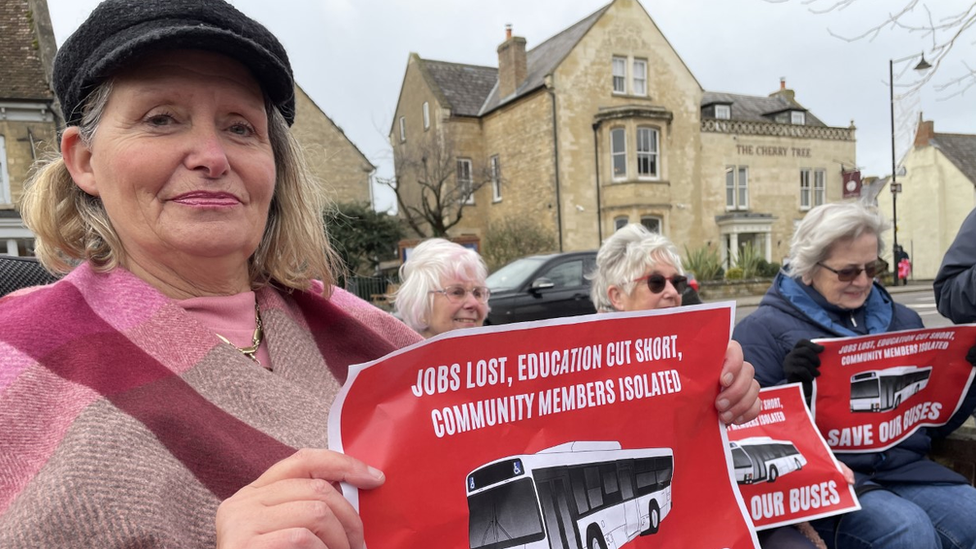
Olney residents say they want the cuts reversed or a new operator brought in
In October, Stagecoach East brought in new bus timetables for services in Cambridgeshire and Bedfordshire. It's left one town with just one bus each way to two of its largest neighbours. Students and commuters are marooned and businesses say the town is increasingly isolated.
"Right now, it's absolutely freezing - even my coat isn't enough."
Charlie Smeraglia is angry, frustrated and cold.
"I stay at school for as long as I can but when the college shuts I have to just sit in the bus stop, because most shops are shut as well."
For how long?
"An hour, hour and a half."
And in these winter months she is waiting around in the dark.
"It's quite scary because I don't know the area well enough," she says.
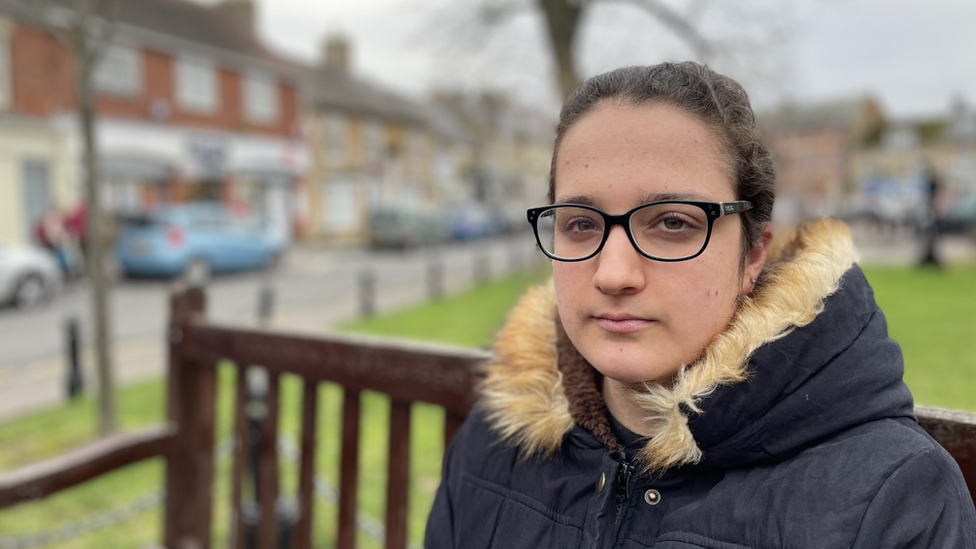
BTec student Charlie Smeraglia says she has to wait for up to an hour and a half for the bus home
The 18-year-old lives in Olney, a market town of about 6,600 people near Milton Keynes, and is studying for a BTec in engineering 12 miles (19km) away in Bedford.
There used to be a regular, hourly service through the day between Bedford and Olney.
The number 41 still runs, but for most of the day it shuttles between Bedford and Turvey, four miles (6.4km) from Olney. There is just one bus from the town to Bedford in the morning and another one which heads back in the evening.
It means Charlie now catches the 07:48 from Olney - "if it's on time" - and can only return on the 17:50 from Bedford.
Transport, she says, was a "huge part" of her decision to study in Bedford.
"It was easy to get there and now it's completely different."
Her mother is "really worried", she says, and "very uncomfortable" about her waiting at a bus stop after classes have finished.
And for Charlie?
"I feel really limited that I can't go out and do things I would normally do.
"I would be getting home sooner and doing more school work, having a job - I've had to change my job because of the bus."
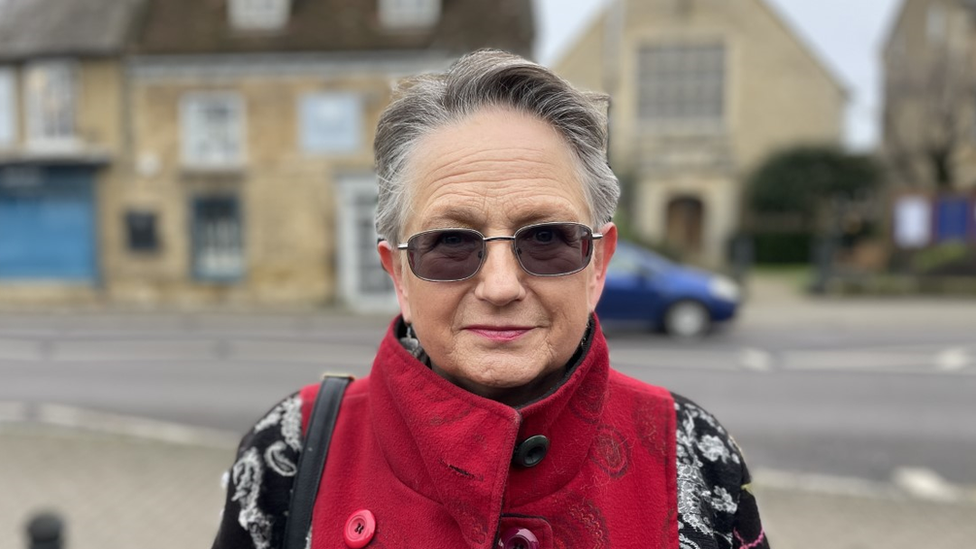
Kate Nicholas had to call the police after her 18-year-old was "inappropriately approached" while waiting for a bus
Kate Nicholas, 59, is on her way to Turvey to collect her 18-year-old, who, like Charlie, also studies in Bedford.
While waiting for the bus, she says, they were "approached by somebody inappropriately".
"They were on their own. They were extremely frightened," she says.
"They rang us and we also rang the police as well because we weren't able to get to Bedford very quickly to go and get them.
"There have been other parents who have said that their children have also had real issues [while waiting for the bus].
"So there's a real safeguarding issue here at the moment."
Mrs Nicholas, who is self-employed, says she has had to "turn my working life around and build my working life around being able to do the runs" to Bedford or Turvey.
"If I wasn't self-employed, that would put me in an impossible situation to continue working."
She says she is "bewildered" that residents are becoming cut off from "essential services" and that there is also a "green issue" because more parents are driving cars to collect children.
"Instead of one bus running, we now have a multiplicity of cars, which has got to be against the government's climate agenda."
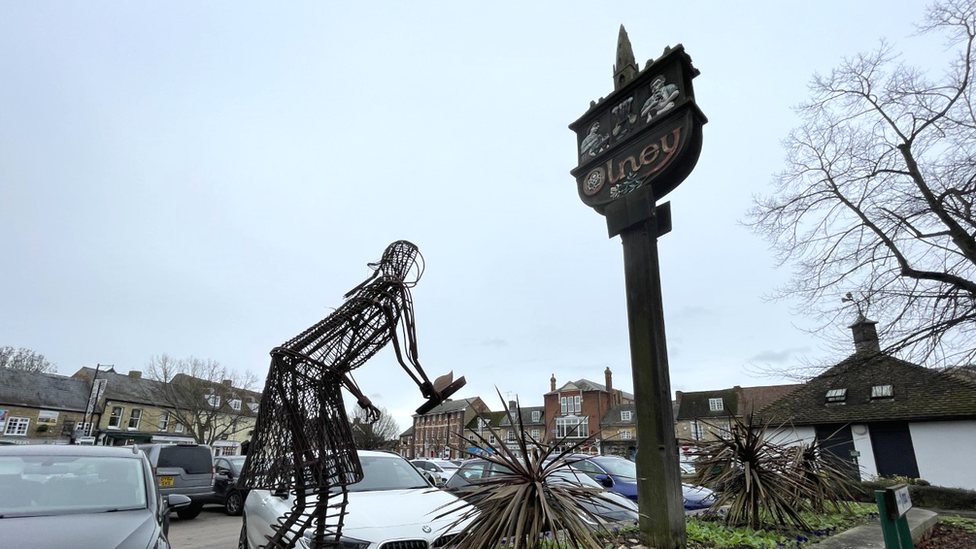
Olney sits between Milton Keynes, Northampton and Bedford but residents say bus cuts are leaving it increasingly isolated
John Quilter, 65, had his driving licence revoked three years ago because of an eye condition, and relied on the number 41 to get to Bedford and Northampton.
He says he's now "fairly marooned" and recently had to pay £30 for a taxi home from Northampton.
"I'm reliant on friends to run me into Northampton to pick me up or I cycle everywhere where I can, which is not a lot of fun going into Northampton or Bedford on the main roads," Mr Quilter says.
"It's pretty tricky, pretty isolating at times."
In Olney itself, businesses say fewer people are coming into shops and cafes since the bus service was reduced,
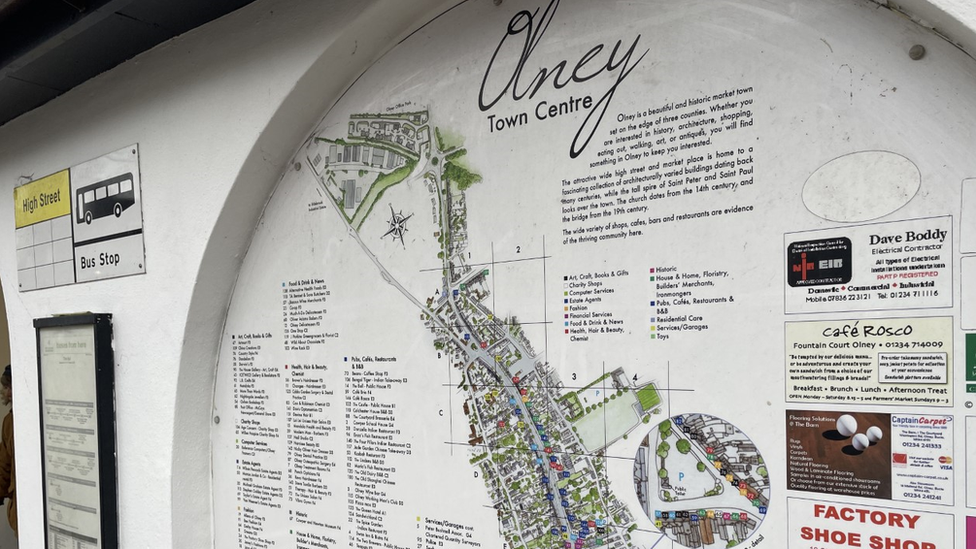
Businesses fear the town will see fewer shoppers and diners now bus connections have reduced
Sharon Rogers works in women's clothing shop Valeria C.
"I think it's impacted a lot on footfall, especially over Christmas time," she says.
"We really struggled and did notice that less people were shopping.
"Olney's growing - we've got lots of new buildings so we need to look at these bus services and we need to get them going so that people can travel and commute."
You might also be interested in
In the Courtyard Brasserie opposite, owner Amir Nazary accepts that the bus cuts have come on top of the cost of living crisis and cold weather, which may have kept diners from coming out.
But he says it's another factor that's making business tougher.
Some of his staff are also now struggling to come in to work, especially on Sundays when the number 41 doesn't run at all.
"Sometimes I have to pick them up myself and drop them off myself… So that's an extra journey, with extra miles," he said.

Amir Nazary has run Courtyard Brasserie in Olney for five years
Mr Nazary said he gives lifts to some staff "every weekend and sometimes in the week as well".
"It's extra pressure, which you don't want. Instead of doing your own things - ordering things to get down [here] - you've got to make sure there's staff down here, otherwise you won't be able to do the business."
If he didn't offer lifts, he says he would "have to close the door or tell everybody there's only me running [the cafe]".
Olney Town Council's deputy mayor, Debbie Whitworth, is now campaigning to have the services reinstated or for a new operator to run buses from the town.
Mrs Whitworth, 63, said: "The impact has been huge. I think the powers that be are underestimating how huge an impact it's had on our local residents and the surrounding villages.
"Every day I'm receiving emails, phone calls from our residents here with a really sad tale to tell.
"I have two residents that have lost their jobs because of the buses."
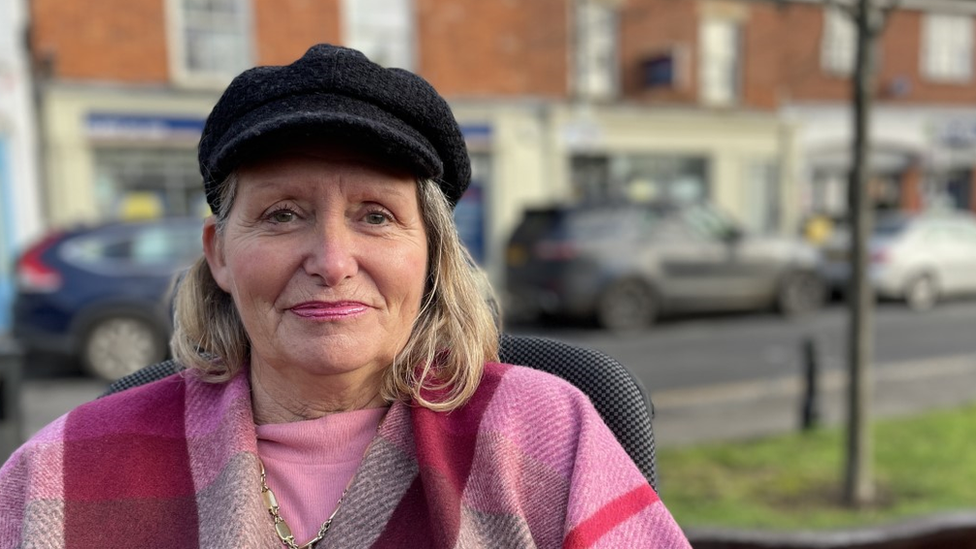
Debbie Whitworth is speaking to other bus companies hoping to find one that will open a new service for Olney
One, she says, is a nurse who used the bus to commute into Northampton and, after 18 years working in the NHS, is "now without work".
She added: "People's lives have changed, they're losing their jobs, they're losing their livelihoods, many have got mental health issues.
"We're isolated in here."
Darren Roe, the managing director of Stagecoach East, said: "As part of our network review, which we were required to do as part of the government's post-pandemic recovery funding arrangements, we implemented a new frequency for the 41 service of every 90 minutes.
"We made this change based on our analysis of data, which showed a significant drop in passenger numbers on this service following the pandemic.
"As a result, we identified the route's previous timetable as unsustainable. We believe this service still has some scope for growth, but will be more sustainable in the long-term with this frequency amendment."We care about our customers and sympathise with those people who have been impacted by these changes."
"Unfortunately, the 41 service's previous frequency is not sustainable given the current passenger flow."

Find BBC News: East of England on Facebook, external, Instagram, external and Twitter, external. If you have a story suggestion email eastofenglandnews@bbc.co.uk
Related topics
- Published8 January 2023
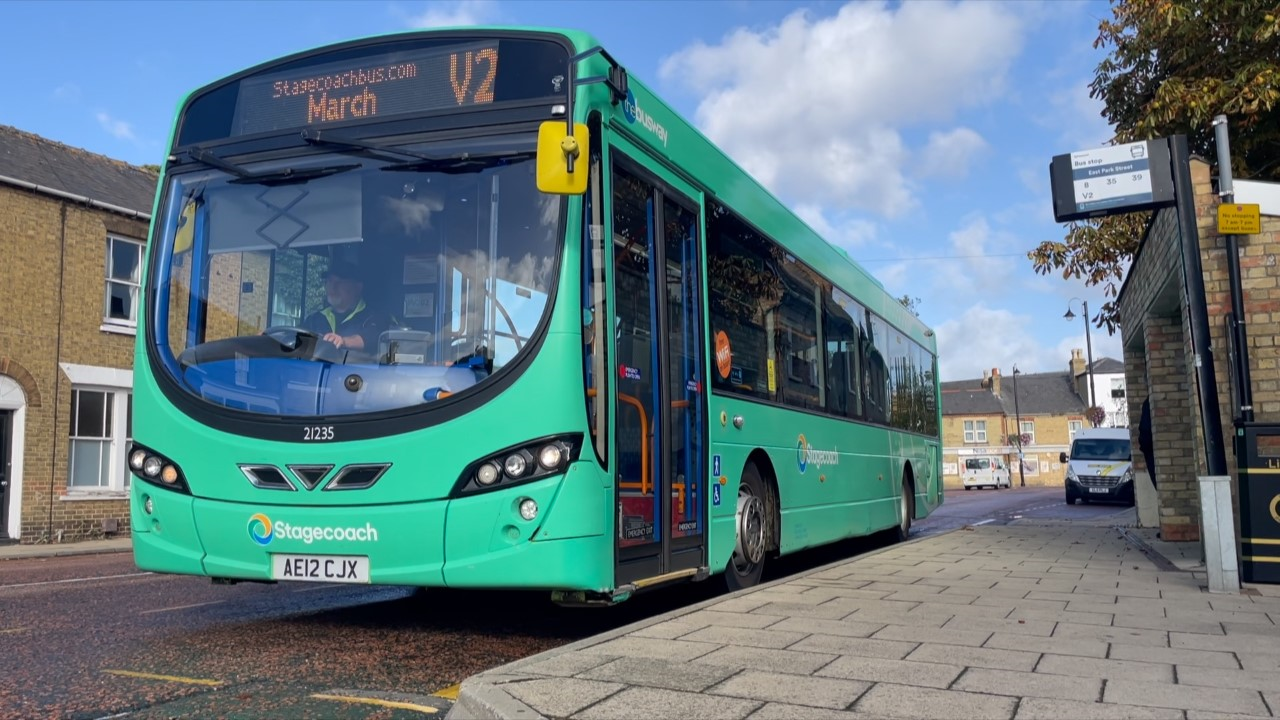
- Published28 September 2022
